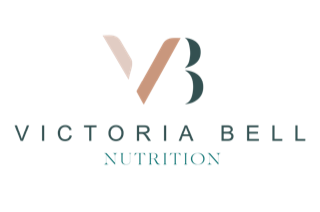How to reduce the chance of catching colds and bugs in the workplace
“It’s that time of year”. “Everybody’s ill”, “I’ve got yet another cold” – have you heard yourself or others say phrases like these a little too regularly? Those pesky bugs love confined and shared spaces, the changing seasons, and people whose defences are down – no wonder it’s tricky avoiding them! In this blog, we’ll cover 5 tips to up your chances of avoiding the germs, no matter where you go.
If you regularly work in a shared office or workplace, or use public transport, you’ll know it has it’s pros and cons. Who knew, when some workers were revelling in the joy of working from home in their PJs, that eventually we might get sick of it and crave some social interaction whilst we work? Maybe just not quite so often as we once did!
In the wake of the pandemic, we find that many of us are more susceptible to catching every bug going than before, and so therein lies one of the downsides of communal working.
If you are an employer or manage a team and you are starting to see the rising trend in more people coming to work unwell, or more staff absences due to illness, you might be wondering what you can suggest to keep everyone well. Or if you’re looking to protect yourself against the seasonal bugs, this blog will give you a few tips.
For a deeper dive into why you or your colleagues might keep getting ill, you can find a previous blog and some tips on lifestyle considerations here.
And here are 5 further tips on what you can do to strengthen your immune system and reduce the chance of catching winter bugs:
Hydration – Water is needed for absolutely every job the body needs to do, including taking nutrients to where they’re needed, making immune cells and repair. You also need water to flush toxins, waste and bugs out of your system. Most people will find 1.5-2 litres per day suits them, but when you are unwell you might need a little more. Warm or hot drinks are often best - some teas are designed to support immunity or look for fresh or dried ingredients such as green tea, lemon, ginger, echinacea, elderberry or rosehip. Soups, broths, stocks and high water content fruits such as citrus and watermelon can also contribute to water intake.
Foods Containing Vitamin C – Rich in antioxidants, these foods help to neutralise the havoc that bugs cause and protect your energy levels. You may be surprised that it is not just in fruit such as citrus fruits, kiwi, berries and blackcurrants, but also in vegetables and herbs too! Peppers are the richest source, while you can also include broccoli kale, spinach, brussels sprouts, parsley and potatoes to meet your needs.
Foods Rich in Zinc – The body burns through more zinc when we are run down or unwell. Animal-based foods provide higher amounts, especially oysters, shellfish, beef, pork and chicken. Pumpkin seeds give the best dose of zinc from plant-based foods, plus you can try firm tofu, yoghurt, lentils, oats and shiitake mushrooms.
Omega 3 – Commonly known to be an anti-inflammatory form of essential fat, you also need omega-3 to protect your nervous system and support transport of nutrients into all your cells. 2-3 portions each week of oily fish (salmon, mackerel, trout, herring, sardines and anchovies) can help you to meet your needs. Flax, chia and walnuts provide some omega-3, although vegans, vegetarians and anyone who cannot regularly eat oily fish may benefit from a good quality cod liver oil, fish oil or an algae-based Omega 3 supplement. If you are on medication, it may be worth checking with your doctor before introducing supplements.
Vitamin D – Needed for immunity, regulating other hormones and bone density, our body can only produce this hormone (yes, it’s not actually a vitamin!) from sunlight and some foods. In the UK we do not have enough sunlight to meet our needs all year-round, so it is recommended that we all top up on Vitamin D between October and March with a supplement of at least 800IU (also known as 10 micrograms). However, it’s important not to go onto high doses unless you have had a blood test that suggests you are deficient and have received appropriate advice from a doctor or nutritionist. See our previous article on Vitamin D deficiency for more information here.
There are many other ways you can look after your own immune system or support your team to stay well. To find out more, you could read more of our blogs or contact us about how we can support you or your workplace.
Victoria Bell is a Registered Nutritional Therapist, Breathwork Coach and is also qualified as a Mindfulness Teacher for Children and Yin Yoga Teacher. She delivers nutrition and wellbeing-themed talks, team building days and mini-consultation days to teams.
To receive occasional newsletters and to be one of the first to hear about future blogs, you can sign up here.


